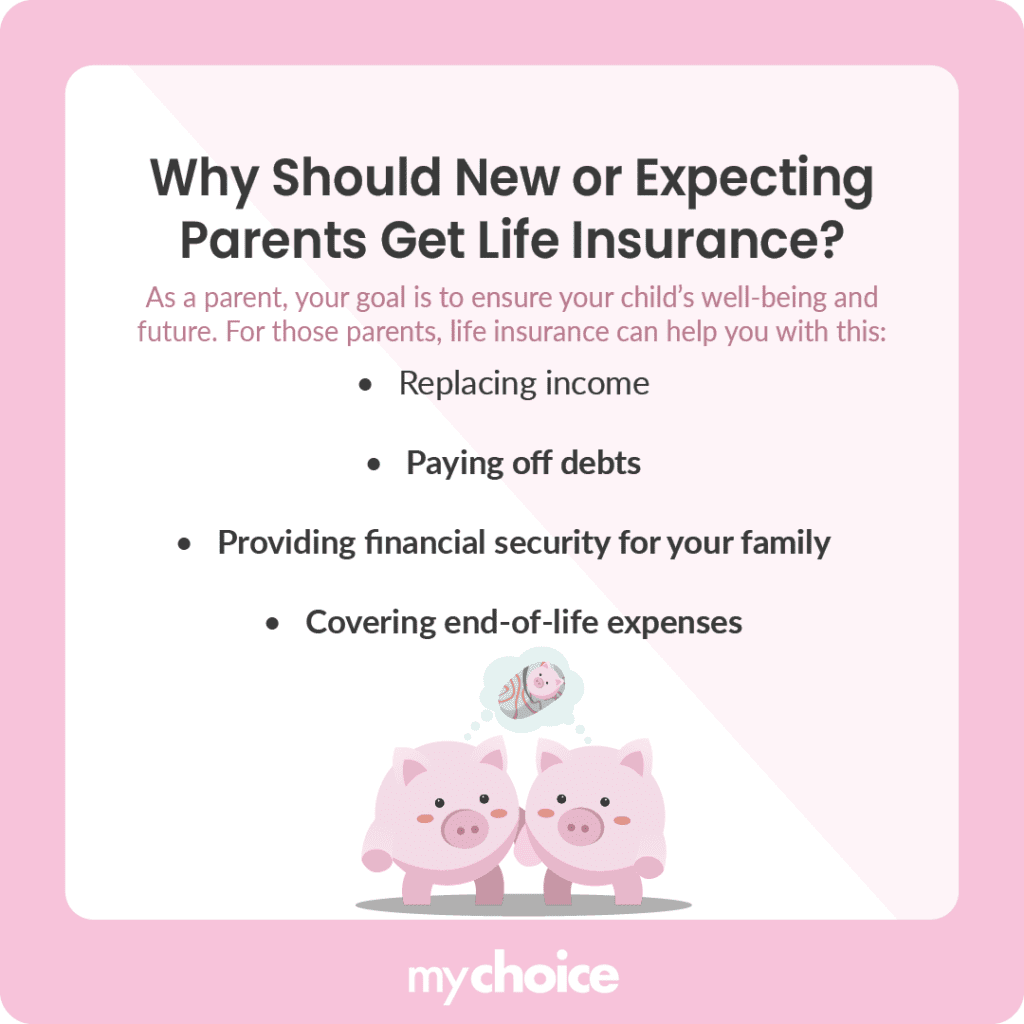Welcoming a child to your family is an incredible, joyful occasion, but also one that brings new responsibilities and financial considerations. One important decision that new parents face is whether life insurance will be part of this planning, be it for themselves, their newborn child, or both. With limited budgets and expected new expenses, it can be tough to decide if life insurance is worth it.
Keep reading to learn why new parents should invest in life insurance coverage, which type they should get, and what policy riders may enhance their family’s financial protection.
Why Should New or Expecting Parents Get Life Insurance?
As a parent, one of your primary goals is to ensure your child’s well-being and give them the best possible start in life. Here are some reasons why life insurance can help you with this:
- Replacing income: In the event of your untimely passing, your life insurance can replace your income to make sure your child’s needs are met, such as food, housing, and education.
- Paying off debts: Life insurance can help pay off outstanding debts like credit card bills and mortgage payments so your family doesn’t have to worry about these obligations.
- Providing financial security for your family: With life insurance, you’ll have peace of mind knowing that there’s a source of funds for your child’s future no matter what happens to you.
- Covering end-of-life expenses: End-of-life expenses like medical bills and burial and funeral costs can be expensive, even if you qualify for funeral assistance programs. A life insurance policy’s death benefit can pay off those costs so your family doesn’t have to dip into their savings.

Should New or Expecting Parents Get Term or Whole Life Insurance?
Young parents have two main types of life insurance to consider: term or whole life insurance policies. Here’s a side-by-side comparison of their main differences:
| Features | Term life insurance | Whole life insurance |
|---|---|---|
| Coverage duration | Temporary, typically 10 to 30 years | Permanent (lifetime) |
| Cash value | No cash value | Builds cash value over time |
| Premiums | Generally lower and more affordable | Higher fixed premiums |
| Dividends | No dividends | Some whole policies pay dividends, which can be used to cover premiums, buy additional coverage, or be taken as cash. |
| Flexibility | May be converted later to a whole life policy | Fixed terms, but can be adjusted with riders |
| Best for | Those who need affordable coverage | Those who want lifelong coverage and cash value |
A term policy has significant benefits for those who need affordable, temporary coverage as a safety net during their working years. Meanwhile, a whole life insurance policy has lifelong coverage and accrued cash value, which can be appealing for those planning in the long term to pass down wealth to the next generation. Choosing between the two will depend on your preferences, financial situation, and individual goals.
What Policy Riders Are Beneficial for Young Parents?
In addition to the primary forms of insurance we mentioned, new or expecting parents can add various riders to customize and increase coverage for certain risks. Here are some recommended policy riders for young parents:
Do Both Parents Need Life Insurance?
Whether both parents are working or one is staying at home as the primary caretaker of the child, both parents still need to be insured. Having life insurance for only one parent only provides half the protection a family can have in place. Here’s a quick breakdown of why both parents need coverage:
Key Advice From MyChoice
- When naming beneficiaries, consider who’ll be responsible for taking care of your child and their needs in the event of your passing. Many parents will name their spouse as the primary beneficiary, but consider naming a guardian for your children as a backup option for your peace of mind.
- Apply for life insurance while you’re young and healthy. Rates tend to go up with age because life insurance providers deem you at greater risk for developing serious health issues.
- Reevaluate your policy regularly. The birth of your child is a major life event that may require adjustments to the coverage you need, so reassess your insurance as your financial situation and family changes.








